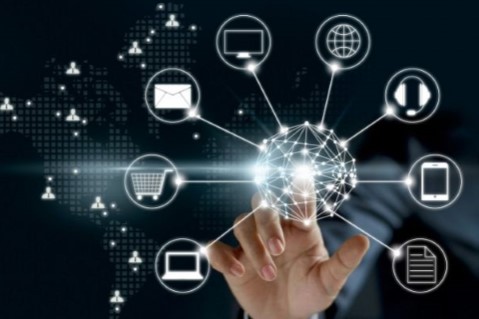
Attempting to Understand the Digital Age
I, like many of my contemporaries, throw out the term “Digital Age” liberally and with some sense that I know what it’s all about.
Recently, someone asked me: What is the Digital Age anyway? Well, I immediately went into what I assumed was a convincing explanation. I referred to the usual emergence of computer technology in the 1970’s, launching of the Internet in the late 1980’s, the mid-90’s www era and today’s reality that almost everything we do is captured in digital form somewhere.
Well, the vagaries of that attempt in explaining fell short of actually explaining in a contextual way just how this Digital Age has impacted us and how it will continue to evolve. I then found that my attempts at explaining needed to be tailored to the recipient as for some it was merely a history lesson and others a comparative explanation of the then and now.
Explaining the topic to say my grandmother might be something like “remember when you went to the bank teller”, and to a millennial it might be “what is a bank teller”. Similarly, in the context of the Polaroid to a smartphone, one appreciates the difference and one asks what is a Polaroid?
Suffice it to say, any attempt to capture the essence of this topic is entirely dependent on to whom the message is directed. I will depart from the historic aspects and look at the more recent technologies and their impact. We have migrated from being somewhat able to control the use and extent of technology to the inexorable reality of virtual total reliance on advanced technology impacting every facet of our lives. It can be feared or revered, but understanding generally alleviates a lot of the fear factor.
I think we all grasp the latest in online everything from social networks, e-commerce and Google anything. Here are some of the more recent technological advances that will continue to influence our everyday lives:
- 5G Networks
- AI
- Blockchain
- Augmented Analytics
Again and again we hear these terms being used and as components of the Digital Age what will these developments mean in our everyday lives.
5G Networks and Why the Fuss About Huawei ?
I will avoid any attempt at explaining the discrete technology as I will very quickly be out of my league. 5G Networks use radio waves known as radio frequency (RF) energy to send and receive voice or data over any distance and measured in milliseconds of response time. To illustrate, a 3G network (early 2000’s) had a speed of 100 milliseconds. Today it’s 4G with 30 milliseconds and 5G promises 1 millisecond. 5G enables enhanced speed in communication. It significantly enhances the communication across and with smart homes, the healthcare industry, cars, virtual reality, smartphones, education, smart utilities, etc., and all globally.
Huawei, a China-based enterprise, is the largest telecom provider in the world and the #2 phone manufacturer. A major concern, apart from some US assertions that the technology was pirated from the US, is it’s potential of sharing data with the Chinese government. Therein lies a significant security risk and several countries have for now banned its use; countries like the US, Australia, Japan and India to name a few.
AI (Artificial Intelligence)
A phrase that has evolved significantly in meaning and understanding. AI is doing more than ever in our everyday lives. Unfortunately, for both good and bad outcomes. It is however the next phase in human-machine collaboration. It is being used in enhancing medical diagnosis and other aspects of health care. For example, facial recognition whether it’s Facebook and its deepface program to tag and share or a medical application. Even the more pedestrian of applications such as scrutinizing resumes, creditworthiness helping in the creation of music as well writing books rely on AI technology.
The bad, well lets use the US election example and the ability of AI to target specific areas and interests to affect voter outcomes.
Blockchain
What is it? A technology with its origins in underpinning digital currency (electronic money as opposed to physical bank notes or coins). It facilitates instant transfer of funds and are borderless transfers of ownership.
The technology allows the distribution of information in digital form to be transferred but not copied. Information and all data associated can only have one owner. Each bit of updated data (a block) is added creating a chain. It eliminates the need for a bank to verify a transaction and it is instant.
Blockchain is not just about financial transactions but also the data it holds can be used in a multitude of industries. An example would be the healthcare segment where data about prescriptions, drug records, treatment etc., where secure, accurate information is trusted and of paramount importance. While the financial transaction is the backbone, the resulting data collection is where the future is most bright.
Augmented Analytics
A big part of just about every industry today relies on analytics. Heck, even hockey players can’t avoid analytics and the implications of performance measures on careers, and most importantly, their compensation.
But what about the augmented component? Here, tools such as Smart Data Discovery automate what a technical professional or analyst would traditionally do. It further facilitates hypothetical scenario development, a huge advantage in business decision making. Advanced analytics provide businesses with better insight into strategies, contemplated with greater accuracy inputs, as well as pricing scenarios, service offerings and the all important ROI data.
This has taken us a very long way from the 1970’s and how it has impacted our everyday lives then and what’s in store for our futures.
So welcome to the ever evolving Digital Age!
Gord Forbes
Managing Principal
